Converting units Worksheets for Ages 5-9
4 filtered results
-
From - To
Introduce young learners to the exciting world of measurement with our Converting Units Worksheets for ages 5-9. Designed to engage and educate, these worksheets help children easily grasp fundamental concepts of converting between units of length, weight, and volume. With colorful illustrations and interactive tasks, kids will enjoy learning to switch between inches and centimeters, pounds and kilograms, and more. Great for class activities or homeschool lessons, our worksheets foster critical thinking and practical skills in everyday contexts. Empower your child with the confidence of clear measurement understanding and watch their math skills flourish. Download now and start measuring the fun!
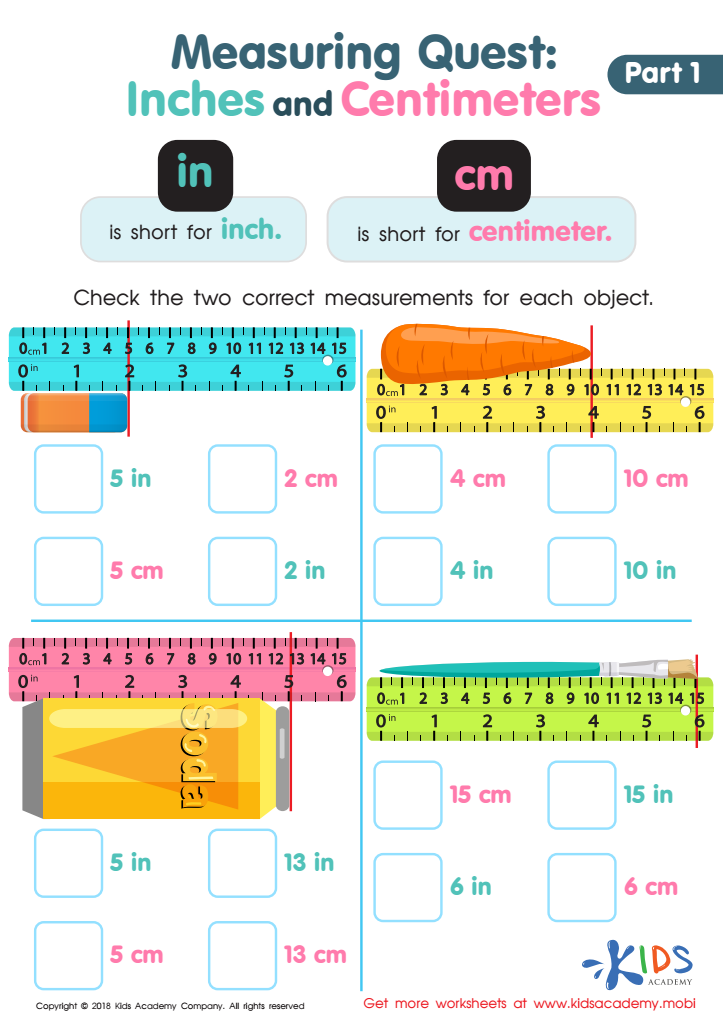

Measuring Quest: Inches and Centimeters Worksheet
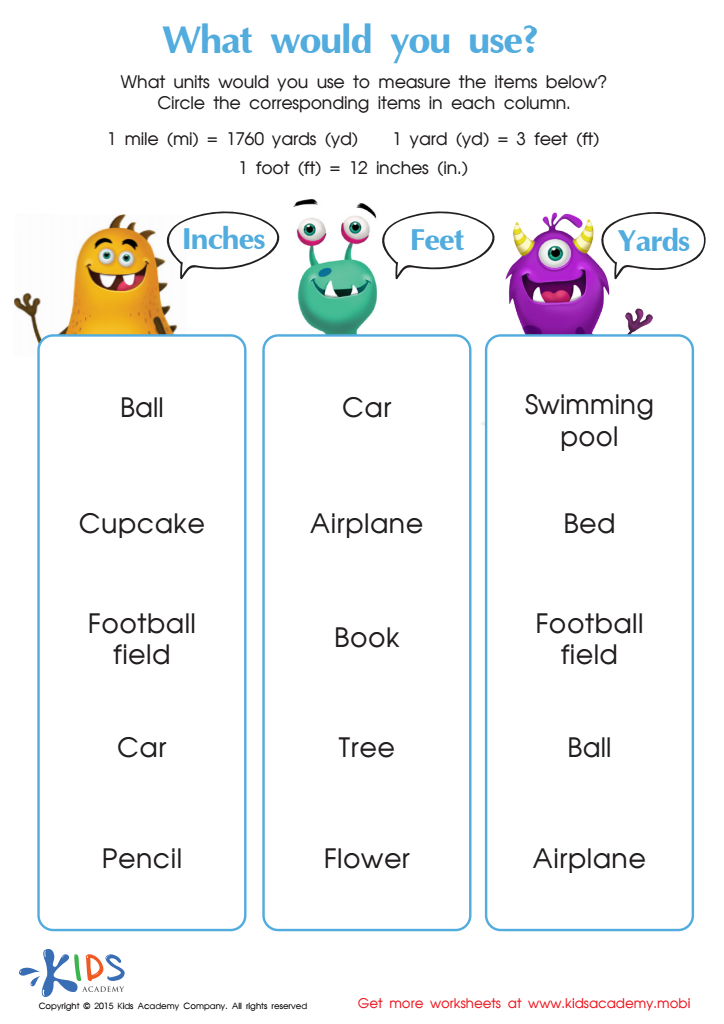

Learning about measuring objects in inches, feet and yards Worksheet
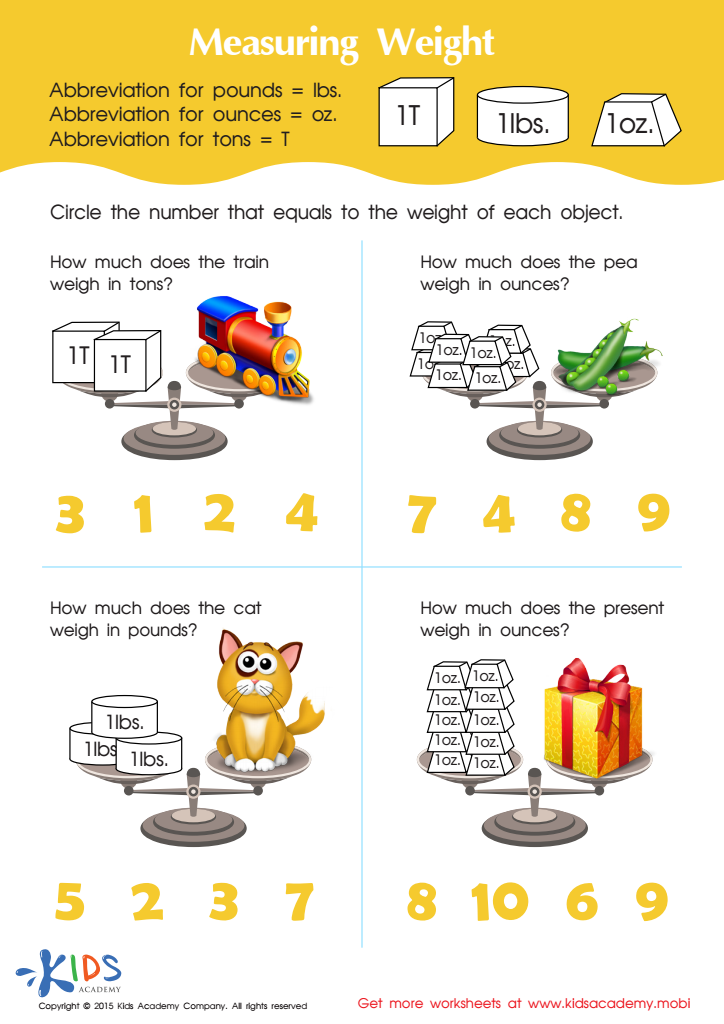

Measuring Weight in Ounces, Pounds and Tons Worksheet
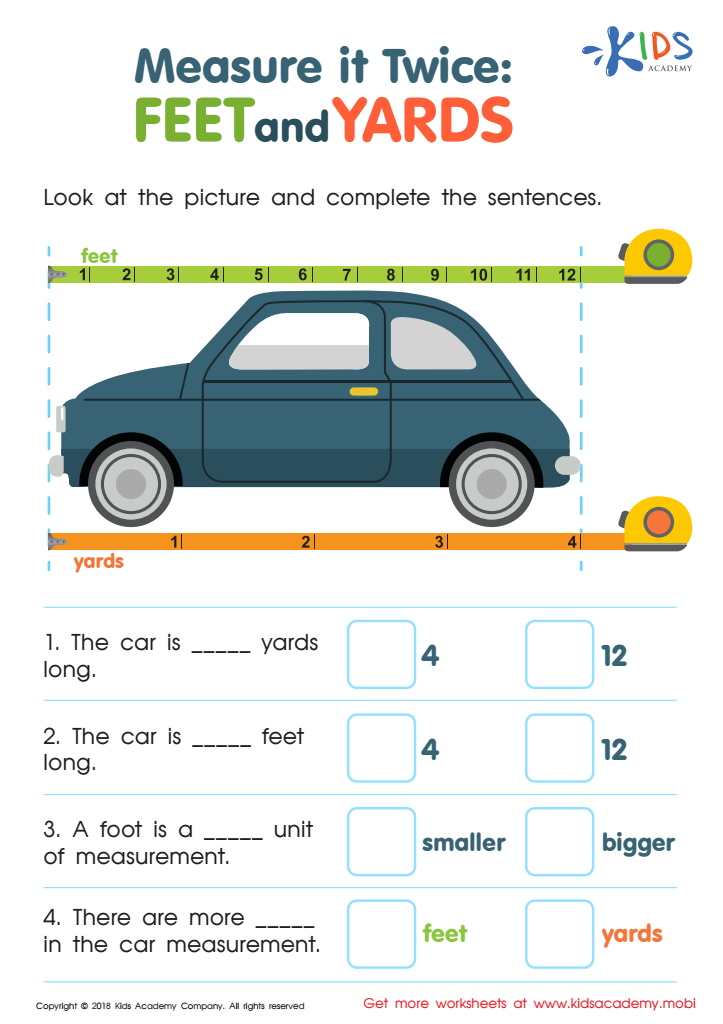

Measure It Twice: Feet and Yards Worksheet
Converting units is an important foundational skill for young learners, ages 5-9, for several reasons. First, it fosters a solid understanding of mathematical concepts by helping children grasp the relationships between different units of measurement. This foundational knowledge can make learning more advanced mathematics easier later on.
Secondly, understanding units and conversions is essential for everyday life. For example, children may need to know how to measure ingredients for a recipe, understand distances when traveling, or even determine the length or height of objects using appropriate units. These practical applications make math relevant and meaningful, the importance of which may inspire greater interest and enthusiasm for the subject.
Additionally, unit conversion encourages critical thinking and problem-solving skills. When kids learn to switch from, say, centimeters to meters or grams to kilograms, they have to apply logical thinking and arithmetic operations.
Moreover, early introduction to these concepts support future learning in science and other subjects, especially as topics like volume, weight, and length reappear in various forms throughout their education.
Lastly, confidence in these skills can bolster overall mathematical confidence, reducing anxiety and fostering a positive attitude toward learning, which can have a lasting impact on a child's educational journey.

 Assign to My Students
Assign to My Students


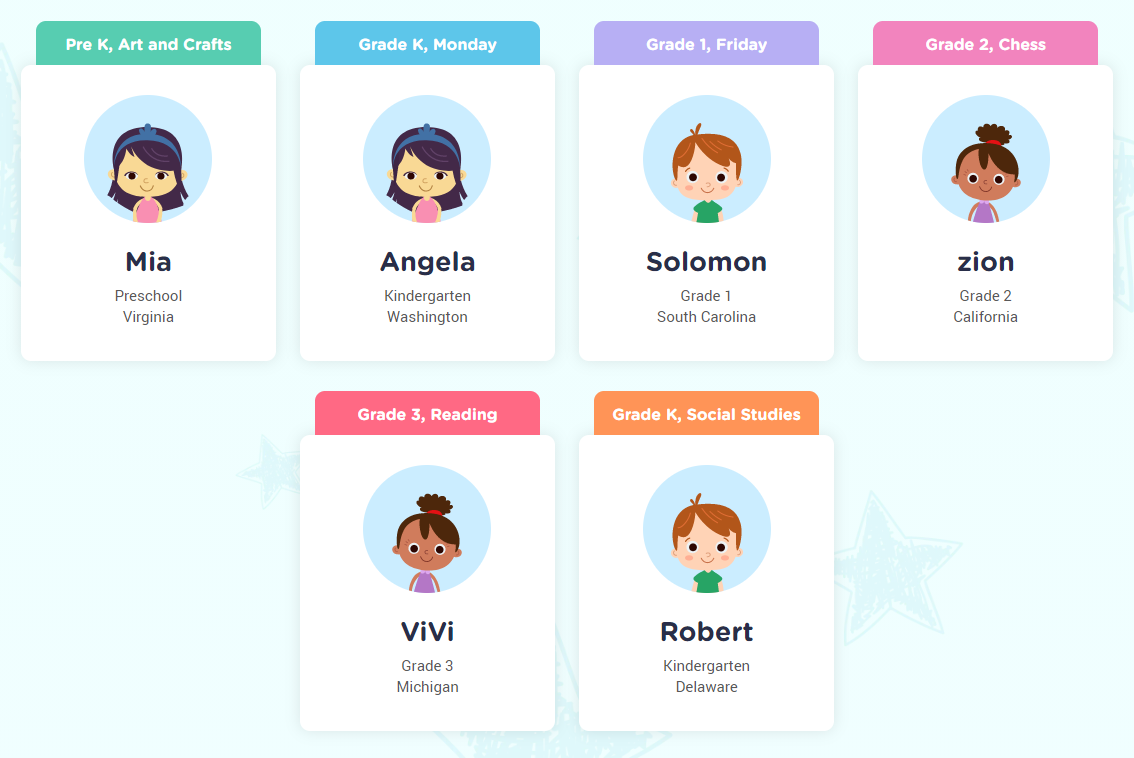
.jpg)












